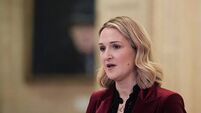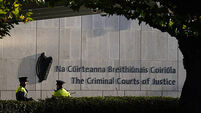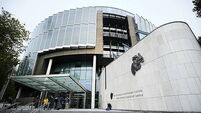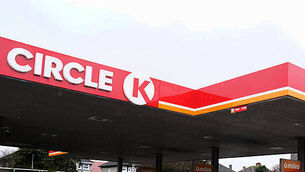Taoiseach Micheál Martin says he will 'definitely not' run for presidency
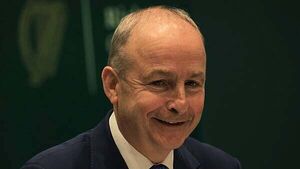
Vivienne Clarke
Taoiseach Micheál Martin has emphatically said that he is “definitely not” going to run as a candidate for the presidency.
Speaking on RTÉ radio’s Morning Ireland, Mr Martin said that Fianna Fáil will consider a candidate in the coming weeks after taking “soundings” from people within the parliamentary party.
When asked if he had spoken with Deirdre Heenan, Mr Martin said he had not.
“A lot of names have been floated in association with Fianna Fáil. I'm not responsible for the flotation of any of those names, just to make that very clear. I was elected, you know, I went to the people to say I wanted to serve Cork South Central and I wanted to lead Fianna Fáil into government.
"I made that obligation to the public, and that's the context. No disrespect to the presidency or anything, but I gave commitments to the people that I would serve in Dáil Éireann for the next five years, and that is what I'm going to do."
The Taoiseach also spoke about the National Development Plan, outlining the various funding sources, including projected surpluses, receipts from Apple, and funds from the Climate and Nature Fund.
"We are projecting surpluses out over the next number of years. There is the additionality of €20 billion from, as you know, the receipts from Apple, about €14 billion, all of them, will go towards the NDP, about €3 billion in terms of the AIB shares sales and a further close to €3 billion from the Climate and Nature Fund," he said.
Mr Martin also emphasised the importance of infrastructure investment for job creation and economic growth, noting that the government will consider various scenarios, including IMF forecasts.
“Investment in infrastructure is important and critical for the future of jobs in this country. And we will look at all scenarios. Even the IMF is predicting, by the way, that we, in and around, and suggesting that we this capacity over the next five years in its forecast in terms of total expenditure spent by the Irish government in its analysis.
“Transport alone is receiving very substantial billions, well over €22 billion plus. So public transport will be a key feature of that. The bigger issue, which will be more private sector-driven, will be offshore wind and the development of renewables in our country. I think that's the big ticket item in respect of emissions reductions and switching from a dependence on imported fossil fuels to our own generated renewables.
"There is no way you would get to 300,000 if you don't have the private Sector contributing a significant number of houses in addition to those that will be provided as a result of the national development plan."
Mr Martin added that by 2030, there will be substantially more houses built, “there'll be far more schools built. I mean, in the last NDP, 800 schools were built. Okay, people give this impression that very little was done with the last NDP, a hell of a lot was done through the last NDP. A whole lot of hospitals were built.
“Active travel, as I said, broadband, for example, has made great strides in terms of that capital plan and the last NDP didn't. Technological University of Grangegorman was also about it; 170 kilometres of road were built, so a lot got done. So a lot of those projects, more and more of those will get done in the next time.
“Take Iarnród Éireann did extraordinarily good work under the last National Development Plan. The transformation of Kent Station, for example, is a good example of that. A lot of the universities, there will be good research projects invested and completed across the university sector," the Taoiseach said.
"I think this development plan, for example, if you add it all up, and the Minister will give greater detail over the next number of weeks, will be a very significant one for research for universities. And that will add to the competitiveness of our economy, and that's important.”
